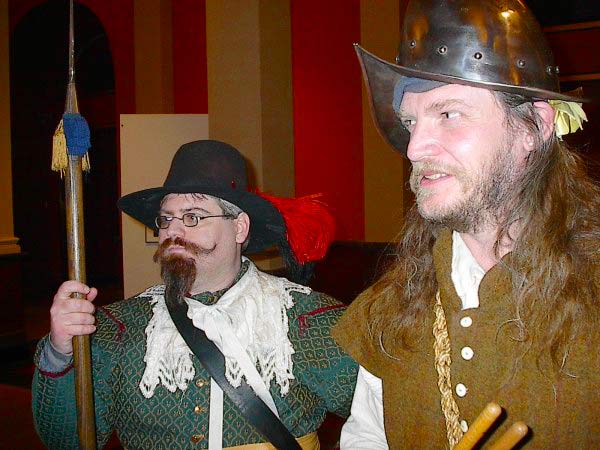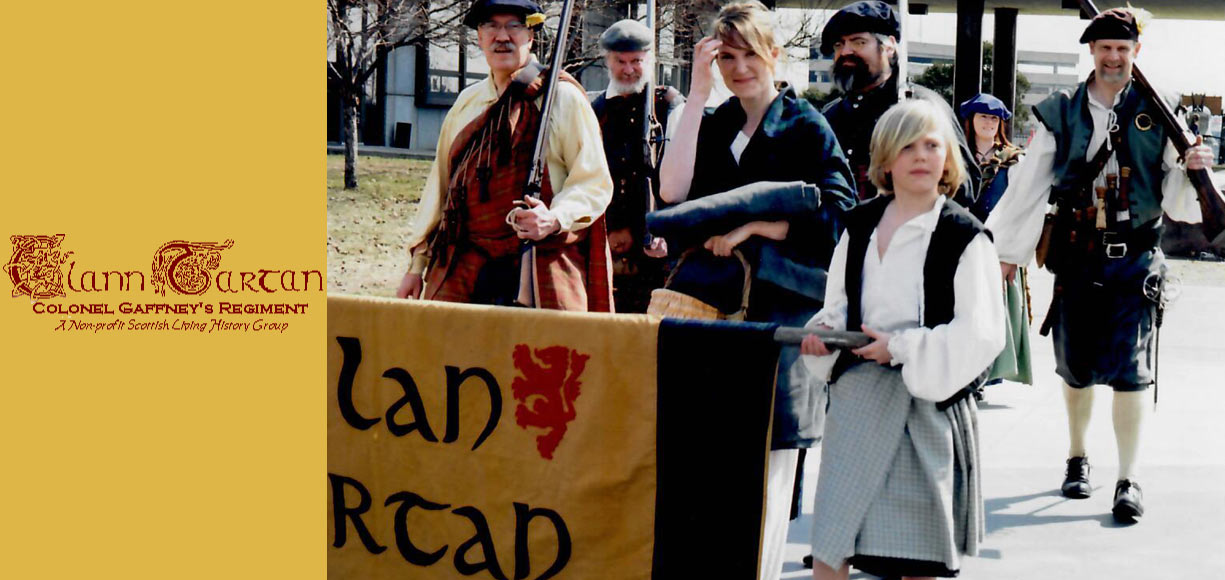When Cannons are Roaring
to the tune of "A Statute for Drunkards and Swearer" (1624)
This song was quoted by Captain Robert Monro in his memoirs of his service under Gustavus Adolphus. Many of you know the tune, but we have done it in the past to a shortened (and slightly mondernized) version. This version is from John Forbe's "Cantus, Songs, and Fancies" of 1662, with corrections from the 1682 edition.
Brave Mars begins to rouse,
and he does bend his browes
Borias burst out in blowes,
great Etnaes fire.
He that may losse the field,
yet let him never yeeld
though thousands should be kilde
let Souldiers try it.
When Cannons are roaring
and Bullets are flying,
He that would honour win
must not fear dying.
Though Constantin be dead,
Who left us honour,
And taught brave Christian Kings,
under his banner.
Paganes amased sood,
in a great wonder,
To see brave Christians come,
like claps of Thunder.
When Cannons, &c.
Raised are the worthies nine,
and now ascending,
Even by a power divyne,
now peace is ending,
so many Christian Kings,
with them to enter,
Against their feircest Foes,
that's brave adventure.
When Cannons, &c.
Sojers with Swords in hands,
to the walls comming,
Horse-men about the streets,
ryding and running,
Sentinells on the walls,
arme, arme, a crying,
Pittards against the ports,
wyld fire a flying,
When Cannons, &c.
Trumpets on turrets hye,
these are a sounding,
Drumes beating out alowd,
echoes resoundihg.
Larim-Bells in ilk place,
the are a ringing,
Women with stones in laps,
to the walls bringing.
When Cannons, &c.
Captains in open fields,
on their foes rushing,
Gentlement seconds them,
with their Picks pushing.
Ingyniers in the Trench,
earth, earth up-rearing,
Gun-powder in the mynes,
Paganes up-blowing.
When Cannons, &c.
Portculzies in the ports
they are down letting,
Burgers come flocking by,
too, their hands setting.
Ladders against the wall,
they are uprearing,
Women great timber[l]oggs
to the walls bearing.
When Cannons are roaring
and Bullets are flying,
He that would honour win
must not fear dying.
Constantin (verse 2) is that 4th century Roman Emperor Constantine who was the first emperor to convert to Christianity.
The Nine Worthies (v. 3) were three pagan (Hector, Alexander the Great, and Julius Caesar), three Jewish (Joshua, David and Judas Maccabaeus), and three Christian (Arthur, Charlemagne, and Godefroy de Bouillon) heroes mentioned together in medieval romances.
Pittards (v. 4) were early explosive shells which were placed on the ports (entrances) of fortifications to try to blow them open. From the French "petard," which means "fart." Honest.
Portculzies (v. 7) were portcullises, those big iron grates at the entrances to towns and castles.
This article originally appeared in the Clann Tartan Newsletter, February 1999.

